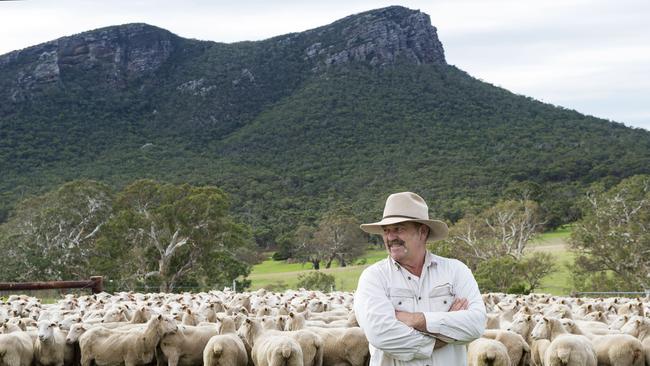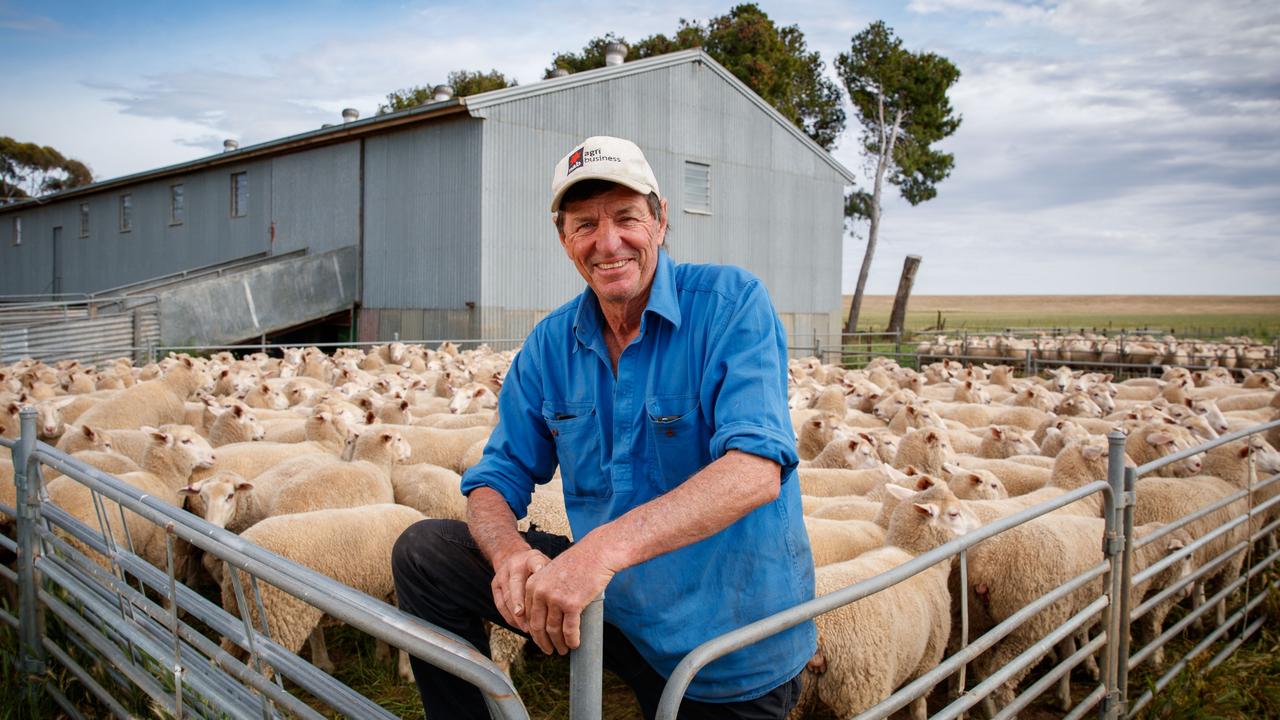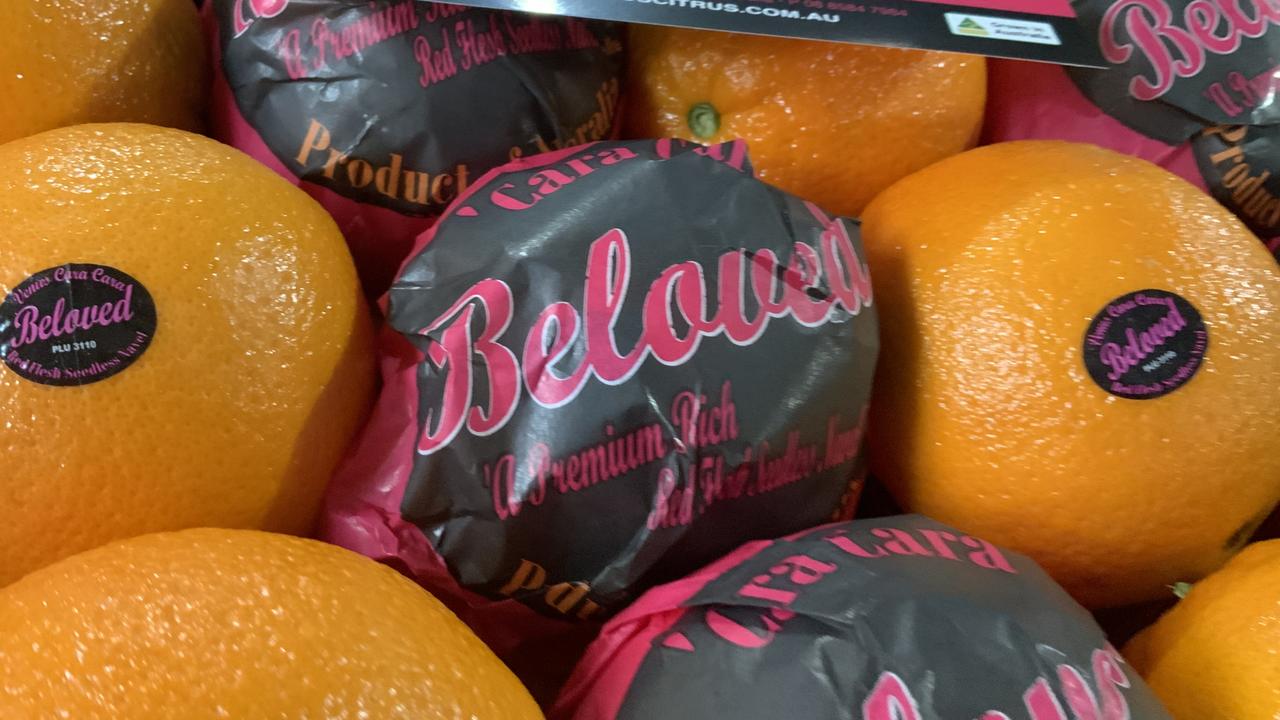Core company values the weigh forward for Dunkeld Pastoral
IN THE shadows of the Grampians, Glenn White’s job at Dunkeld Pastoral is taking food and fibre to the world.

THE son of a butcher, one of Australia’s most famous barristers, Allan Myers has built an empire in and around his hometown of Dunkeld.
The QC’s personal wealth has been reported to exceed $720 million and a part of that is invested in Western District farms.
Myers’ sprawling home estate, the grounds of which take up an entire Dunkeld town block, are fortressed by a 2.5km sandstone wall.
The stone safeguards not only the home and several other buildings, but preserves a wooden hut, once his father’s — a reverent nod to long family connections to the Grampians region.
As well as the 8300ha pastoral holdings of Dunkeld Pastoral Company, Myers also owns the famed Royal Mail Hotel, which recently featured on MasterChef. While Myers is best known for his legal work, representing the likes of Alan Bond and Gina Rinehart, he has also poured money into helping to put Dunkeld on the map.

This includes his investment in Dunkeld Pastoral, run by Glenn White and a team of employees, which has grown to become one of the region’s best-known, large-scale, red-meat producers.
Glenn hails from Queensland’s Cunnamulla district, where he had a background in crutching and contract mustering and mulesing, before managing Clover Downs Station, then owned by Clyde Agriculture, for seven years.
He started with Dunkeld Pastoral in 2010 and has overseen huge changes in the past eight years.
“It was mainly fine-wool Merinos and Hereford cattle,” he said. “Now, it is all prime lamb and Angus cattle.
“We’ve gone with better returns. It comes down to kilograms produced per hectare and we have been able to double that in eight years.
“The farms were doing 430 tonnes of red meat and wool and now we’ve doing over 900 tonnes.”
GROWTH FARMS
DUNKELD Pastoral was established through a 400ha purchase in 1976. It has since swelled to 8300ha in 16 parcels of land, split into three management groups.
“We now produce 450,000kg (carcass weight) of lamb and 100,000kg of beef, 250,000kg of mutton and 100,000kg of 28-32 micron wool annually,” Glenn said.
Corea South is 4000ha and runs 12,000 first-cross and composite maternal ewes mated to Poll Dorsets to produce terminal lambs, as well as a self-replacing Angus herd, turning off weaners sold locally or into The Great Southern grass-fed contracts.
Eulameet is 3600ha and carries 12,000 self-replacing maternal composite ewes and heifers, which are artificially inseminated.
This is the third year the Dunkeld Pastoral flock has been entirely prime lamb-based after the shift from Merinos.
“Three years ago I made a major decision to sell all the (superfine, Roseville Park infusion) Merinos and buy PTIC (pregnancy tested in calf) young cattle for $1000; history will tell you that was the best decision as they were worth $2000 12 months later,” Glenn said.
The sheep enterprise uses early-maturing, high fat and muscle Primeline composites from Tom Bull’s Lambpro stud at Holbrook, paying an average of $3500 last year for “the best genetics we can buy”. Each ram sires 700-900 lambs in its lifetime, so it was “money well spent”.
Most lambs, 22-23kg, are sold direct to Coles, as well as lambs “straight off-mum” to Midfield Meats around Christmas. Heavier lambs are sold to JBS Australia.

MINIMISE RISK
DUNKELD Pastoral has two lambings, winter and spring to balance weather risks.
Ewe lambs are joined to lamb at 13 months for a lambing rate of 90 per cent, which Glenn describes as the “key to the success we’re having”.
Joinings run for five weeks then all stock is scanned and classes managed separately.
Last year’s lambing results were the best-ever for the company, at 132 per cent. This included the adult ewes achieving 138 per cent and 112 per cent for the ewe lambs (which comprise about 30 per cent of the flock).
Glenn said a large driver of the improved percentages was subdividing paddocks to accommodate smaller mobs.
“There are a number of things that influence lambing percentages; having rams right, ewes in good condition score, spiked, teased; it is all about the one percenters,” he said.
“We’ve done 200km of fencing, 140km of new pipes, 80 tanks and troughs.
“There were a lot of big paddocks, 60-80ha, and we’ve dividing them into 12-15ha, which allows us to run way more ewes and much higher lambing percentages.
“We are putting a lot of focus on shelter belts and plant thousands of trees each year. This year 27,000 at a minimum of 20m row spacing and 30m on boundaries and a 30m plantation through the centre to give connectivity for wildlife.
“Plantations give 100-150m of protection and increase temperature by three or four degrees, which has a huge impact on lamb survivability.
“We don’t want to lamb down mobs of any bigger than 150 twins or 250 singles, which gives us 170-plus per cent in our twins and 95 per cent in singles.”
Glenn said lamb survivability was a key performance indicator.
Last year the flock lost 17 per cent of foetuses; and the four-year average was 22. The industry average is 30 per cent.
“I don’t think we can go much better, to be honest, I’d be happy year-on-year with 15 per cent,” he said.
EARLY ADOPTER
DUNKELD Pastoral has conducted many electronic ID trials, dating back to 2012.
Glenn said he could not overstate the benefits of using EID data, and that without it “we wouldn’t be anywhere near where we are now”.
“EID allows us to track a ewe’s history all the way through its growing stage, so you can aim for the target weight at joining 45-50kg at eight to nine months,” he said.
“We expect 80 per cent to get in lamb and then lamb at 110 per cent of ewes mustered.
“That is actually where we want to be. It is very hard to go much further than that with our scale of 10,000 ewe lambs.
“The ones that don’t get in lamb are scanned out and sold into Coles or JBS grids.”
Glenn said one of the biggest benefits with EID was working out the optimum weight of each ewe that will get her to conceive twins, which they have been able to do through their trials.
“EID has helped us immensely to get ewe lambs to weight and to know what (nutritional) plane they need to be on to get them to conceive,” he said. “We weigh ewe lambs every three to four weeks in that period, and then all ewes three times per year; at weaning, joining and scanning.
“You start off with the target weight, you know what her target weight should be, and weighing tells us if the ewe has gone forward or backwards. We then manipulate their feeding.”
Glenn said a major trial examined condition score and its correlation to weight.
“We were hoping to remove the need to do condition score, but the trial showed there is not a clear linear relationship,” he said.
From this trial Glenn and team now work out each ewe’s optimum joining weight. Recording the information on EID numbers, the ewes’ condition score and weight are taken at two and three years-old and that information gives an optimum joining target for the rest of her life.
“We have followed ewes through for three years and it has shown that it works, our goal is CS3.5 at joining so you are scanning at above 150 per cent,” he said. “Before we did the trial everyone was saying they need to be CS3. “It has been a huge change. Last year we made big thing of it and it has shown in the lambing percentages.”
PERCENTAGE GAME
OVER the past three years Dunkeld Pastoral has increased its lambing percentages by 20 per cent, but Glenn admitted it wasn’t just condition scoring that did that. “but you do have to get them in lamb first”.
At scanning, every ewe has reproductive results recorded against her EID tag.
“It is a bit labour intensive, but when you get in a system we can do 3000 ewes a day,” he said.
Over time, recording showed some ewes were far more productive than others. Glenn believes Dunkeld Pastoral is probably the only commercial property in Australia to be recording ewe productivity, using EID, so comprehensively.
And to evaluate the success of such rigorous record keeping, Glenn said it all came down to numbers.
“The way we look at it is kilograms produced per year — we have doubled it in the past eight years,” he said. “We are now running more ewes on less land, producing more meat.”
Dunkeld Pastoral has five staff per 13,000 ewes, plus 800 breeders. It will continue to split up paddocks and plant shelter belts, increasing ewe numbers and twinning rates.
“Our dry rate is down to 2.5-3 per cent now,” Glenn said. “Now we need to increase twinning rates — we’d like to see that 65 per cent and 30 per cent singles.”
From the end of November to the end of May, Dunkeld Pastoral turns off an average of four to six decks of lambs to Coles weekly.
With the lambing rate now at 132 per cent, including ewe lambs, Glenn said he believed a consistent 140 per cent might be achievable in the future.
Dunkeld Pastoral currently aims for 70 per cent of winter-drop lambs to be sold off-mum from clover, plantain and lucerne pastures; but the amount of lambs finished in its feedlot depends on the season.
Ewe lambs are also grown out in the feedlot. Glenn said he always calculated a break-even price based on lot-fed lamb’s consumption and target market, always allowing for “worse-case scenarios”. He said lambs must be backgrounded properly and weighed and their EID data recorded on entry.
Dunkeld Pastoral keeps lambs in tight 3-5kg weight brackets and weights are monitored carefully for daily growth. Bullies and shy feeders are removed.
Glenn said the feedlot would not be as profitable without EID technology.
CARBON FUTURE
THE company’s aim is to produce an ethical, clean, green product and be recognised for it. “Eventually we’d like to sell our lamb as carbon neutral,” Glenn said.
“We believe we are carbon neutral so are now looking at how we go about using that (in marketing).”
Fourteen per cent of Dunkeld Pastoral land is vegetation, with a goal to increase this to 22 per cent.
“More and more people are looking for a cleaner and greener product that is ethically produced,” Glenn said.
Ultimately, Glenn thinks producers will be put under greater pressure to reduce their carbon footprint.
But he said greater clarity on what the targets should be needed to be agreed on at the industry level.
“On animal-welfare, lamb survivability is the big one; keeping them alive and that our death rates are below industry average,” he said.
“We measure and monitor it so we know what our sheep and lambs die from; is it a weather event or something else.”
Each year the Dunkeld Pastoral sheep produce 600 wool bales, which “more than pays for the shearing”.
But, “even with wool at $20/kg we think we are still in a better position having moved to prime lambs”.
Plus, he said he believed the upside for growth in global markets was greater for protein demand than for wool.
The cattle enterprise is 800 September-calving breeders with the aim to take that up to 1200, Angus-based with some Hereford blood; plus trade and agistment cattle, taking the total head to 2000. Bulls are bought from Pathfinder and Banquet, averaging $12,000.
Finished cattle are sold to JBS’ Great Southern grassfed program at 16-18 months.
Previously weaners were sold into local weaner sales. “Now if we need to we’ll sell into the feeder market, or to people who background for JBS,” he said.
With Dunkeld Pastoral now concentrating solely on red meat production, Glenn said he was not concerned by a lack of enterprise diversity.
“We’re doing the red meat so well I’m happy to be all-in,” Glenn said.
“We’re looking for the edge now with other things such as going carbon neutral and command producing a superior product in order to command a premium on that.”


